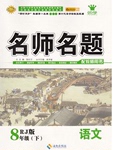题目内容
Every day millions of letters go from one country to another. Letters mailed in Italy are received in Japan. Letters mailed in Canada are received in Africa. On the letters are many different kinds of stamps,bought in different countries.
The Universal Postal Union helps each letter get to the right place as quickly as possible. It sets up rules about the size and weight of letters,postcards,and small packages(包裹). It has rules that all countries must follow about international postal rates(费用).
One hundred years ago,international mail did not move so smoothly. One country did not always accept another country’s letters. Letters from some countries were too large to fit into the mailboxes of other countries. Letters travelled by many different routes(路线).Some were lost along the way.
Sometimes the person who sent the letter could pay only part of the postage. The person receiving the letter had to pay the rest.
The United States was the first to suggest that all countries work together to settle the questions of international mail. In 1974,men from twenty-four countries met in Switzerland to form the Universal Postal Union.Today,more than 120 nations belong to this union. From its office in Switzerland,the union helps the mail to move safely and quickly around the world.
小题1:From the story we can infer that ______.
小题2:The Universal Postal Union was formed ___________________ .
小题3:The underlined word “postage” in this passage means __________ .
小题4:This passage is mainly about ______________ .
The Universal Postal Union helps each letter get to the right place as quickly as possible. It sets up rules about the size and weight of letters,postcards,and small packages(包裹). It has rules that all countries must follow about international postal rates(费用).
One hundred years ago,international mail did not move so smoothly. One country did not always accept another country’s letters. Letters from some countries were too large to fit into the mailboxes of other countries. Letters travelled by many different routes(路线).Some were lost along the way.
Sometimes the person who sent the letter could pay only part of the postage. The person receiving the letter had to pay the rest.
The United States was the first to suggest that all countries work together to settle the questions of international mail. In 1974,men from twenty-four countries met in Switzerland to form the Universal Postal Union.Today,more than 120 nations belong to this union. From its office in Switzerland,the union helps the mail to move safely and quickly around the world.
小题1:From the story we can infer that ______.
| A.mail is important to all countries |
| B.not enough letters are sent all over the world |
| C.all the letters must go to Switzerland first |
| D.all stamps look exactly the same |
| A.to help move mail quickly around the world |
| B.to give many men a chance to work |
| C.to help men meet in Switzerland |
| D.to look for the lost letters along the way |
| A.money paid when you buy a stamp |
| B.money spent on an envelope |
| C.the charge for carrying a letter by post |
| D.the pay a postman receives for his work |
| A.different kinds of stamps in different countries | B.an organization that makes rules |
| C.international mail | D.the size and weight of letters |
小题1:A
小题2:A
小题3:C
小题4:C
略

练习册系列答案
 优学名师名题系列答案
优学名师名题系列答案
相关题目



 se Tuan Yan NOT to do?
se Tuan Yan NOT to do?